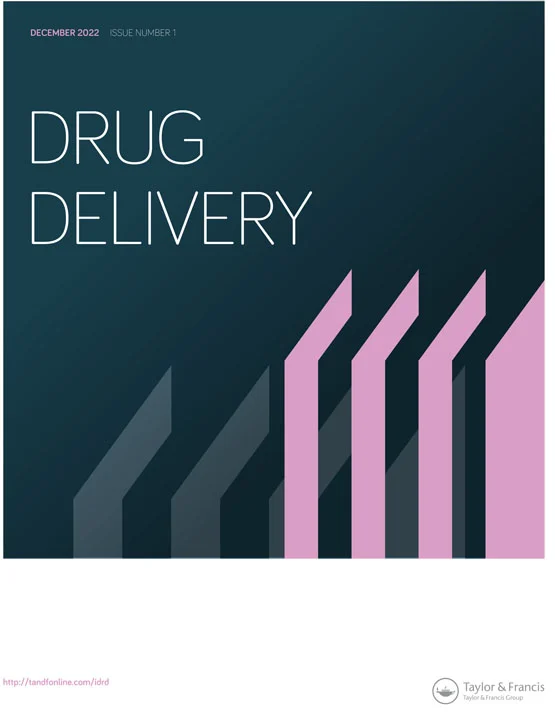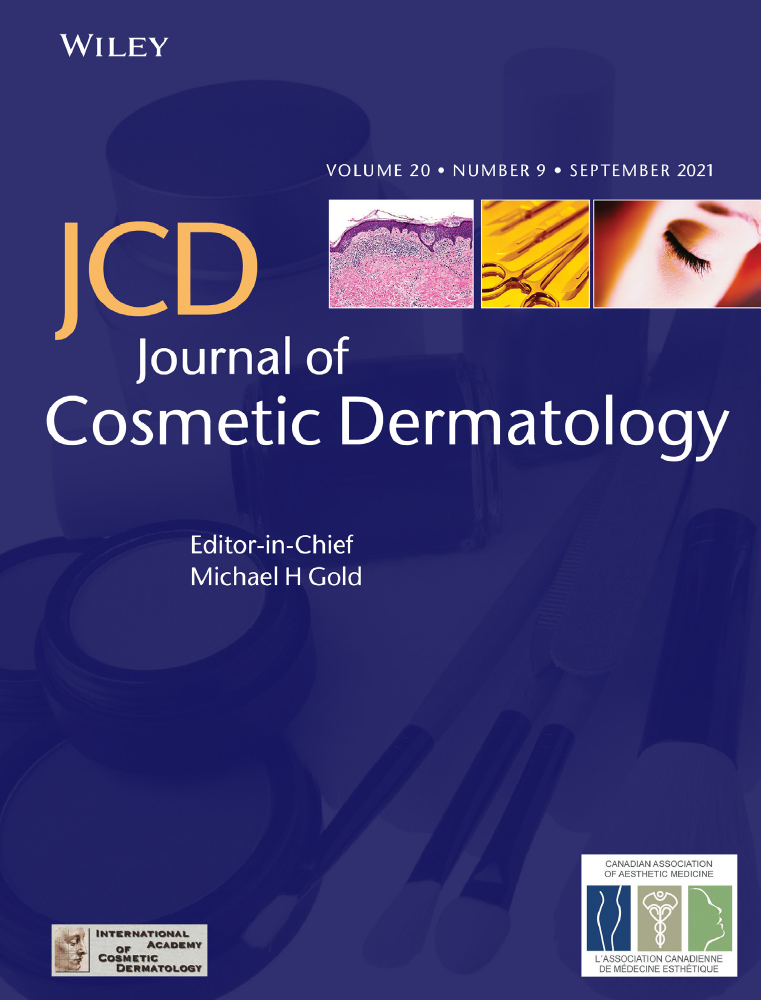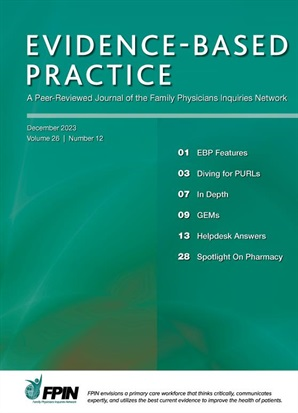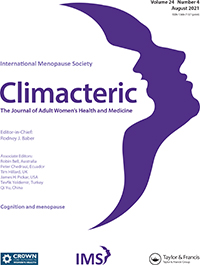Pumpkin Seed Oil
How to submit an article:
- Registered users can submit any published journal article that has a unique DOI (Digital Object Identifier) name or link to Research Hub.
- For example, you can paste the full DOI link:
https://doi.org/10.1109/5.771073or just the DOI name:10.1109/5.771073into the field above and click submit. - The person who is first to submit a valid article to Research Hub will forever be credited for it, and every article submission earns you +6 Research Points.
Published research studies are articles that present the findings of original research that has undergone a peer-review process and has been made publicly available in scholarly journals, books or other media.

Evaluation of the Safety and Effectiveness of Nutritional Supplements for Treating Hair Loss
2023 Jan 01 JAMA Dermatology Drake L, Reyes-Hadsall S, Martinez J, Heinrich C, Huang K, Mostaghimi A
Dietary and nutritional interventions, including Viviscal, Nourkrin, Nutrafol, Lamdapil, Pantogar, capsaicin and isoflavone, omegas 3 and 6 with antioxidants, apple nutraceutical, total glucosides of paeony and compound glycyrrhizin tablets, zinc, tocotrienol, pumpkin seed oil, Kimchi and cheonggukjang, vitamin D3, and Forti5, showed varying levels of evidence for potential benefits in improving disease course, with rare and mild adverse effects.
Systematic Review Randomised Controlled Trial Hair Loss Pumpkin Seed Oil
Development and optimization of a tamsulosin nanostructured lipid carrier loaded with saw palmetto oil and pumpkin seed oil for treatment of benign prostatic hyperplasia
2022 Aug 01 Drug Delivery Bakhaidar RB, Hosny KM, Mahier IM, Rizq WY, Safhi AY, Bukhary DM, et al.
The optimized TM-S/P-NLC, with specific characteristics (particle size of 102 nm, entrapment efficiency of 65%, and steady-state flux of 4.5 μg/cm2.min), demonstrated improved stability (95%) and released TM more effectively (81%) than TM-NLCs without S/P oil or TM aqueous suspension. The pharmacokinetic profile of TM in TM-S/P-NLC was improved, and in vivo studies showed favorable results in terms of prostate weight and prostate index, suggesting the potential of TM-S/P-NLC as a novel drug delivery system for BPH.
Experimental Study Pumpkin Seed Oil Benign Prostatic HyperplasiaThe potential of pumpkin seed oil as a functional food—A comprehensive review of chemical composition, health benefits, and safety
2022 Jul 29 Comprehensive Reviews in Food Science and Food Safety Šamec D, Loizzo MR, Gortzi O, Çankaya T, Tundis R, Suntar , et al.
Review Article Cardiovascular Disease Menopause Pumpkin SeedPumpkin seed oil, with its phytochemical content, shows beneficial properties against cardiovascular problems in menopausal women and hormone imbalances.
Pumpkin seed oil (Cucurbita pepo) versus tamsulosin for benign prostatic hyperplasia symptom relief: a single-blind randomized clinical trial
2021 Oct 19 BMC Urology Zerafatjou N, Amirzargar M, Biglarkhani M, Shobeirian F, Zoghi G
Randomised Controlled Trial Benign Prostatic Hyperplasia Pumpkin Seed TamsulosinPumpkin seed oil can alleviate symptoms of benign prostatic hyperplasia with no side effects, though not as efficiently as tamsulosin.

Pumpkin seed oil vs. minoxidil 5% topical foam for the treatment of female pattern hair loss: A randomized comparative trial
2021 Feb 12 Journal of Cosmetic Dermatology Ibrahim IM, Hasan MS, Elsabaa KI, Elsaie ML
Randomised Controlled Trial Pumpkin Seed Female Pattern Hair LossPumpkin seed oil shows promising potential in treating female pattern hair loss, with results comparable to the effects of minoxidil 5% foam.
Research insights are moderated by the Research Hub team and offer an at-a-glance overview of interesting research findings.
2022 Comprehensive Reviews in Food Science and Food Safety
Pumpkin seed oil, with its phytochemical content, shows beneficial properties against cardiovascular problems in menopausal women and hormone imbalances.
Review Article Cardiovascular Disease Menopause Pumpkin Seed
The potential of pumpkin seed oil as a functional food—A comprehensive review of chemical composition, health benefits, and safety
Šamec D, Loizzo MR, Gortzi O, Çankaya T, Tundis R, Suntar , et al.
2021 BMC Urology
Pumpkin seed oil can alleviate symptoms of benign prostatic hyperplasia with no side effects, though not as efficiently as tamsulosin.
Randomised Controlled Trial Benign Prostatic Hyperplasia Pumpkin Seed Tamsulosin
Pumpkin seed oil (Cucurbita pepo) versus tamsulosin for benign prostatic hyperplasia symptom relief: a single-blind randomized clinical trial
Zerafatjou N, Amirzargar M, Biglarkhani M, Shobeirian F, Zoghi G

2021 Journal of Cosmetic Dermatology
Pumpkin seed oil shows promising potential in treating female pattern hair loss, with results comparable to the effects of minoxidil 5% foam.
Randomised Controlled Trial Female Pattern Hair Loss Pumpkin Seed
Pumpkin seed oil vs. minoxidil 5% topical foam for the treatment of female pattern hair loss: A randomized comparative trial
Ibrahim IM, Hasan MS, Elsabaa KI, Elsaie ML

2018 Evidence-Based Practice
Pumpkin seed oil and pumpkin seeds can effectively reduce obstructive urinary symptoms in patients dealing with symptomatic benign prostatic hypertrophy, performing as well as saw palmetto and prazosin.
Randomised Controlled Trial Benign Prostatic Hyperplasia Pumpkin Seed
Do pumpkin seeds or pumpkin supplements reduce symptoms of BPH?
Edwards R, Shadiack A

2011 Climacteric
Pumpkin seed oil supplementation may increase good cholesterol levels, lower diastolic blood pressure, and alleviate menopausal symptoms in postmenopausal women.
Randomised Controlled Trial HDL-C Menopause Postmenopausal
Improvement in HDL cholesterol in postmenopausal women supplemented with pumpkin seed oil: pilot study
Gossell-Williams M, Hyde C, Hunter T, Simms-Stewart D, Fletcher H, McGrowder D, et al.
Review Articles
Review articles summarise and critically evaluate the current state of research on a specific topic or field by synthesising multiple primary research studies.

Evaluation of the Safety and Effectiveness of Nutritional Supplements for Treating Hair Loss
2023 Jan 01 JAMA Dermatology Drake L, Reyes-Hadsall S, Martinez J, Heinrich C, Huang K, Mostaghimi A
Dietary and nutritional interventions, including Viviscal, Nourkrin, Nutrafol, Lamdapil, Pantogar, capsaicin and isoflavone, omegas 3 and 6 with antioxidants, apple nutraceutical, total glucosides of paeony and compound glycyrrhizin tablets, zinc, tocotrienol, pumpkin seed oil, Kimchi and cheonggukjang, vitamin D3, and Forti5, showed varying levels of evidence for potential benefits in improving disease course, with rare and mild adverse effects.
Systematic Review Randomised Controlled Trial Hair Loss Pumpkin Seed OilThe potential of pumpkin seed oil as a functional food—A comprehensive review of chemical composition, health benefits, and safety
2022 Jul 29 Comprehensive Reviews in Food Science and Food Safety Šamec D, Loizzo MR, Gortzi O, Çankaya T, Tundis R, Suntar , et al.
Review Article Cardiovascular Disease Menopause Pumpkin SeedPumpkin seed oil, with its phytochemical content, shows beneficial properties against cardiovascular problems in menopausal women and hormone imbalances.
Clinical Trials
Clinical trials are research studies that involve people and are conducted to evaluate the safety and efficacy of new treatments or interventions, such as drugs, medical devices, or behavioural therapies.

Evaluation of the Safety and Effectiveness of Nutritional Supplements for Treating Hair Loss
2023 Jan 01 JAMA Dermatology Drake L, Reyes-Hadsall S, Martinez J, Heinrich C, Huang K, Mostaghimi A
Dietary and nutritional interventions, including Viviscal, Nourkrin, Nutrafol, Lamdapil, Pantogar, capsaicin and isoflavone, omegas 3 and 6 with antioxidants, apple nutraceutical, total glucosides of paeony and compound glycyrrhizin tablets, zinc, tocotrienol, pumpkin seed oil, Kimchi and cheonggukjang, vitamin D3, and Forti5, showed varying levels of evidence for potential benefits in improving disease course, with rare and mild adverse effects.
Systematic Review Randomised Controlled Trial Hair Loss Pumpkin Seed OilPumpkin seed oil (Cucurbita pepo) versus tamsulosin for benign prostatic hyperplasia symptom relief: a single-blind randomized clinical trial
2021 Oct 19 BMC Urology Zerafatjou N, Amirzargar M, Biglarkhani M, Shobeirian F, Zoghi G
Randomised Controlled Trial Benign Prostatic Hyperplasia Pumpkin Seed TamsulosinPumpkin seed oil can alleviate symptoms of benign prostatic hyperplasia with no side effects, though not as efficiently as tamsulosin.

Pumpkin seed oil vs. minoxidil 5% topical foam for the treatment of female pattern hair loss: A randomized comparative trial
2021 Feb 12 Journal of Cosmetic Dermatology Ibrahim IM, Hasan MS, Elsabaa KI, Elsaie ML
Randomised Controlled Trial Pumpkin Seed Female Pattern Hair LossPumpkin seed oil shows promising potential in treating female pattern hair loss, with results comparable to the effects of minoxidil 5% foam.

Do pumpkin seeds or pumpkin supplements reduce symptoms of BPH?
2018 Jun Evidence-Based Practice Edwards R, Shadiack A
Randomised Controlled Trial Benign Prostatic Hyperplasia Pumpkin SeedPumpkin seed oil and pumpkin seeds can effectively reduce obstructive urinary symptoms in patients dealing with symptomatic benign prostatic hypertrophy, performing as well as saw palmetto and prazosin.

Improvement in HDL cholesterol in postmenopausal women supplemented with pumpkin seed oil: pilot study
2011 May 05 Climacteric Gossell-Williams M, Hyde C, Hunter T, Simms-Stewart D, Fletcher H, McGrowder D, et al.
Randomised Controlled Trial Postmenopausal Pumpkin Seed Oil HDL-C MenopausePumpkin seed oil supplementation may increase good cholesterol levels, lower diastolic blood pressure, and alleviate menopausal symptoms in postmenopausal women.
Study Protocols
Published study protocols are detailed plans that outline the objectives, methodology, statistical analyses, and organisation of a research study that have been made publicly available for others to review and use as a reference.
Presentation Slides

Review Article
Pumpkin seed oil, with its phytochemical content, shows beneficial properties against cardiovascular problems in menopausal women and hormone imbalances.
Šamec D, Loizzo MR, Gortzi O, Çankaya T, Tundis R, Suntar , Shirooie S, Zengin G, Devkota HP, Reboredo‐Rodríguez P, Hassan STS, Manayi A, Kashani HRK, Nabavi SM

Randomised Controlled Trial
Pumpkin seed oil can alleviate symptoms of benign prostatic hyperplasia with no side effects, though not as efficiently as tamsulosin.
Zerafatjou N, Amirzargar M, Biglarkhani M, Shobeirian F, Zoghi G

Randomised Controlled Trial
Pumpkin seed oil shows promising potential in treating female pattern hair loss, with results comparable to the effects of minoxidil 5% foam.
Ibrahim IM, Hasan MS, Elsabaa KI, Elsaie ML

Randomised Controlled Trial
Pumpkin seed oil and pumpkin seeds can effectively reduce obstructive urinary symptoms in patients dealing with symptomatic benign prostatic hypertrophy, performing as well as saw palmetto and prazosin.
Edwards R, Shadiack A

Randomised Controlled Trial
Pumpkin seed oil supplementation may increase good cholesterol levels, lower diastolic blood pressure, and alleviate menopausal symptoms in postmenopausal women.
Gossell-Williams M, Hyde C, Hunter T, Simms-Stewart D, Fletcher H, McGrowder D, Walters CA
Executive Summary
Write an executive summary in the form of a blog article on the topic of "Research into Chinese medicine treatment for Pumpkin Seed Oil" summarising the research below and using language that can be easily understood by patients and avoiding medical jargon using a professional and caring tone of voice.
Write an executive summary in the form of a blog article on the topic of "Researched Chinese medicine treatments for Pumpkin Seed Oil" summarising the research below in an objective and easy to understand way, and using language that can be easily understood by patients. Group the article into Chinese medicine treatments first, followed by nutrition and other treatments. Avoid using medical jargon and use a professional and caring tone of voice.
Write me a concise but easy to understand executive summary on the topic of "Chinese medicine treatments for Pumpkin Seed Oil" based on the following research that I will give you. Your summary should be 2 paragraphs long in Australian English spelling and include references to the studies.
A Review Article published in 2022 in the journal Comprehensive Reviews in Food Science and Food Safety found that Pumpkin seed oil, with its phytochemical content, shows beneficial properties against cardiovascular problems in menopausal women and hormone imbalances. The study focused on gathering scientific information that highlights the potential of pumpkin seed oil as a health-benefiting food ingredient. Its focus is on the oil’s chemical composition, phytochemical content, biological activity, safety measures alongside the various production processes. The researchers examined major phytochemicals found in the oil, including polyphenols, phytoestrogens, and fatty acids, while also noting the potential health benefits of carotenoids, squalene, tocopherols, and minerals present in it. In terms of methodology, most studies within this review were conducted in vitro to validate the oil's antioxidant and antimicrobial activities. Furthermore, there were clinical studies undertaken specifically to observe the effect of the oil in addressing cardiovascular challenges in menopausal women and conditions related to sex hormone imbalances. The comprehensive overview covers a wide array of data on the composition and potential uses of pumpkin seed oil.
A Randomised Controlled Trial published in 2021 in the journal BMC Urology found that Pumpkin seed oil can alleviate symptoms of benign prostatic hyperplasia with no side effects, though not as efficiently as tamsulosin. In this single-blind randomized clinical trial, patients aged 50 years or above suffering from benign prostatic hyperplasia were included. These patients were divided into two groups, with one group being administered tamsulosin nightly and the other receiving pumpkin seed oil twice a day. Variables such as age, weight, height and body mass index of the patients were taken into account. The international prostate symptom score was noted for each patient at the start, then after one and three months into the treatment. Other factors recorded include the quality of life associated with BPH, prostate-specific antigen serum, prostate and postvoid residual volume and maximum urine flow. Information regarding any drug side effects was also recorded. Following a comparison of the two groups, it was observed that there was no significant difference in principal variables at any point during the trial. However, both groups saw a notable reduction in the international prostate symptom score and an improvement in quality of life. The decrease was comparatively more significant in the tamsulosin group after one and three months. Patients administered pumpkin seed oil experienced no side effects, unlike those in the tamsulosin group who experienced dizziness, headaches, retrograde ejaculation and erythema with pruritus.
A Randomised Controlled Trial published in 2021 in the journal Journal of Cosmetic Dermatology found that Pumpkin seed oil shows promising potential in treating female pattern hair loss, with results comparable to the effects of minoxidil 5% foam. The study conducted involved a random assignment of patients with female pattern hair loss to either apply pumpkin seed oil or minoxidil 5% foam for three months. Assessments of these patients were carried out clinically and dermoscopically at the start of the trial, halfway through, and at the end. The group allocated pumpkin seed oil (group A) demonstrated a notable decrease in hair shaft diversity from before and after the treatment, as well as a decrease in vellus hairs (non-pigmented, fine hairs). There was also a significant increase in upright regrowing hairs after treatment. For the group assigned to the minoxidil foam (group B), there was also a similar significant decrease in hair shaft diversity and vellus hair numbers from before to after treatment. This suggests that both pumpkin seed oil and minoxidil 5% foam have beneficial effects in treating female pattern hair loss.
A Randomised Controlled Trial published in 2018 in the journal Evidence-Based Practice found that Pumpkin seed oil and pumpkin seeds can effectively reduce obstructive urinary symptoms in patients dealing with symptomatic benign prostatic hypertrophy, performing as well as saw palmetto and prazosin. In the methodology of this research, the scientists observed and compared the effects of pumpkin seed oil, pumpkin seeds, pumpkin seed extract, saw palmetto and prazosin on patients suffering from symptomatic benign prostatic hypertrophy. The main purpose of the experiment was to determine which substances could alleviate obstructive urinary symptoms to the greatest extent. Effects of these substances were noted on a consistent basis to accurately gauge their efficacy. In the discussion of results, it was found that both pumpkin seed oil and pumpkin seeds exhibited a notable reduction in obstructive urinary symptoms among the patients. Pumpkin seed extract was observed to not perform better than placebo, implying it didn't contribute significantly to symptom relief. Interestingly, pumpkin seed oil was found to be on par with saw palmetto and prazosin in terms of alleviating BPH-related symptoms. This discovery positions pumpkin seed oil and pumpkin seeds as potential natural solutions for addressing urinary symptoms linked to benign prostatic hypertrophy.
A Randomised Controlled Trial published in 2011 in the journal Climacteric found that Pumpkin seed oil supplementation may increase good cholesterol levels, lower diastolic blood pressure, and alleviate menopausal symptoms in postmenopausal women. In this pilot study employing a randomized, double-blinded and placebo-controlled design, 35 women that were either naturally menopausal or had prematurely entered menopause due to benign surgical intervention partook. Over the span of 12 weeks, participants received either pumpkin seed oil or wheat germ oil (serving as the placebo) at a dosage of 2 grams daily. Measurements of serum lipids, fasting plasma glucose, blood pressure and completion of a questionnaire regarding menopausal symptoms were taken before and after the supplementation period, and changes across these factors were evaluated. Following supplementation, women who received pumpkin seed oil displayed increased concentrations of high density lipoprotein cholesterol (commonly known as good cholesterol) and a reduction in diastolic blood pressure. Additionally, there was a notable decline in the severity of menopausal symptoms, including hot flushes, headaches, and joint pain, thanks to this supplementation. Contrarily, symptoms of depression and feelings of being unloved heightened among women in the group that received wheat germ oil.
Moderation Tools
Topic
Sign In
Users not signed in are limited to viewing the 5 most recent items of content.